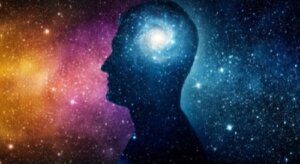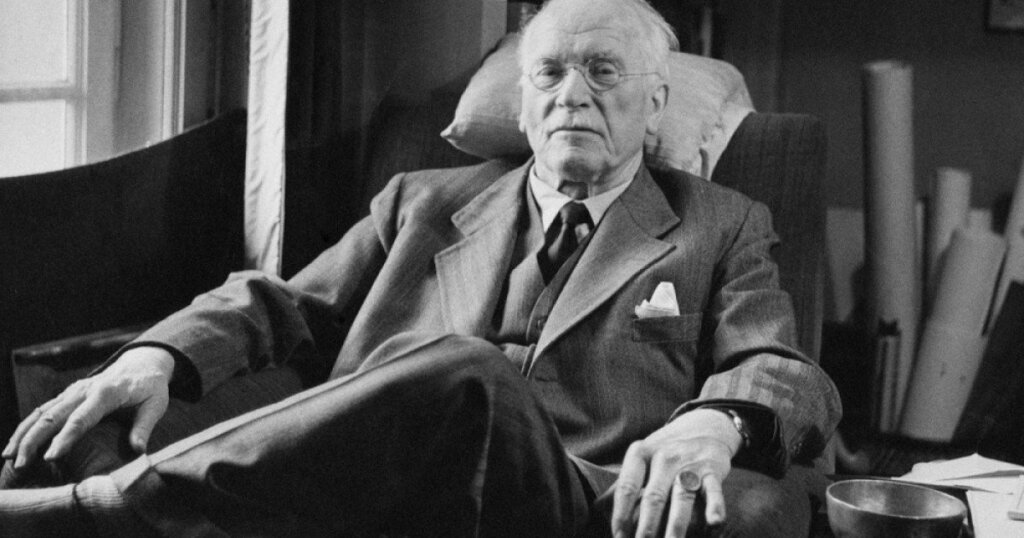Enantiodromia: The Emergence of Your Unconscious Opposite


Written and verified by the psychologist Valeria Sabater
Were you brought up in a strict, severe, and harshly authoritarian environment? If so, you might want to free yourself from the shadow of your annihilating family and start to appreciate your life now, enjoying your new feelings of freedom, and spontaneity. Moreover, it may be the case that, after this experience, you don’t want to build any solid commitments for a while because you value your independence so much.
This reality, which is more common than you may think, serves as a simple example of a concept coined by the father of analytical psychology, Carl Jung. Enantiodromia defines the manifestation of your unconscious opposite at any given moment. It means that you demonstrate conduct contrary to your usual ways of being.
However, it’s not an extreme behavior that completely distances itself from your real essence. In reality, this reaction is like a regulatory exercise. For example, there are times when you find yourself trapped in harmful situations from which you can only escape by behaving in a totally different way. In these cases, taking a 180º turn can often make it easier for you to find the perfect point of balance in your existence.
“According to the principle of compensation that runs through all of nature, all psychic development, whether individual or collective, has an optimum that, when exceeded, produces an enantiodromia, that is, it becomes its opposite.”
-Carl Jung-

Enantiodromia
Although Carl Jung introduced the term enantiodromia to modern psychology in his work Psychological Types, in reality, he borrowed the concept from Heraclitus. Indeed, it was he who identified this regulatory function that, in many cases, has apparently opposite dimensions. We only have to remember what the pre-Socratic Greek philosopher once observed:
“Cold things warm up, the hot cools off, wet becomes dry, dry becomes wet”.
Jung explained in his notes that, after reading Heraclitus, the great sage whom he’d always admired, he realized something. This was the fact that there are times in our lives when the more we try to achieve something, we achieve just the opposite. In fact, Jung himself felt that the more he worked to achieve peace and happiness, the more frustrated he became. But does this kind of experience make any sense?
Harmony lies in the opposite
Heraclitus (535-475 BC) observed that, in nature, most things are replaced at some point by their opposites. This idea is also deeply rooted in Chinese philosophy through the concept of the taijitu, the classic symbol that represents yin and yang.
This concept demonstrates that, in everything we know, there are forces that, although they’re opposite to each other, complement each other. For example, light can’t exist without darkness, death is meaningless without life, and night will always give way to day. This set of contrary elements also configures the balance of everything we know.
The philosopher Friedrich Nietzsche also explored this idea. He did so in his book, Human, All Too Human (1878). Enantiodromia has always been understood as Le Chatelier’s principle, an idea taken from modern chemistry. It concerns how often a system opposes its opposite for a really simple objective: to restore balance.
Motivation emerges from conflict
Enantiodromia isn’t a well-known experience so we’ll give an example. Imagine a country that’s been dominated by an autocracy for centuries. Eventually, a rebellion arises that temporarily leads to anarchy. Gradually, this small state starts to develop its democratic system. Hence, balance emerges from conflict.
Enantiodromia could also involve being loyal to someone until, as a result of some deep disappointment, you become enveloped in feelings of frustration and contempt. That transition from admiration to rejection and devotion to revulsion also makes it easier for you, over time, to achieve harmony after accepting what happened.
Let’s also think about many of the processes that dominate nature. No doubt you’ve witnessed summer afternoons when the heat eventually becomes suffocating until, suddenly, a storm breaks out. With the freshness of the rain, the atmosphere recovers its balance. Moreover, this wonderful demonstration of adverse forces never ceases to be amazing.
“The assumption is that the opposite of the person’s attitude is probably also part of the person’s attitude; even if it is a less developed side of his personality.”
-Claudio Naranjo-
The repressed shadow that seeks to express itself
Carl Jung offered another concept that’s closely related to the idea of enantiodromia. As you probably know, the archetype of the shadow symbolizes the ‘dark side’ of your personality, those repressed characteristics of your own being that you tend not to recognize.
There are times when you spend time hiding your needs, wants, and desires that go against what you appear to be. For instance, you might be really restrained, disciplined, and self-demanding because that’s how you were raised. It’s also because this is the kind of image that others expect you to consistently portray. However, sometimes you explode.
Indeed, at certain moments your repressed shadow comes to light and all your resistance collapses. It’s then when parts of yourself emerge that may be the opposite of what you’ve always portrayed.
Have you suddenly changed? Have you suffered an unusual personality malfunction? The answer is no. In fact, these traits have always been present, but you’ve contained them due to social and educational factors.

A path to liberation…
Carl Jung explained that the phenomenon of enantiodromia is present in our essence, but is difficult for us to understand. This explains why you sometimes have a hard time making sense of your own extreme or distorted behaviors.
Jung claimed that these situations are common when we’re dominated by extremely inflexible experiential tendencies. Over time, a contrast arises that seeks to serve as a catharsis. This explains why, after a period of stress, you need to loosen your inhibitions. Or why, after a relationship based on domination, you yearn only for your independence.
Enantiodromia is a path to liberation after conflict.
All cited sources were thoroughly reviewed by our team to ensure their quality, reliability, currency, and validity. The bibliography of this article was considered reliable and of academic or scientific accuracy.
- Jung, C.G. (1970), “Psychiatric Studies,” Collected Works, 1. Princeton: Princeton University Press.
- Jung, Carl (1960), ”The Structure and Dynamics of the Psyche,” CW 8. Princeton: Princeton University Press.
- Jung, Carl (1959), ”The Archetypes and the Collective Unconscious,” CW 9i. Princeton: Princeton University Press.
- Jung, CG (2014). Dos ensayos sobre psicología analítica . Routledge. pág.. 72
- Naranjo, C. (1993). Gestalt Therapy: The attitude and practice of an atheoretical experientialism. Nevada City,
This text is provided for informational purposes only and does not replace consultation with a professional. If in doubt, consult your specialist.








